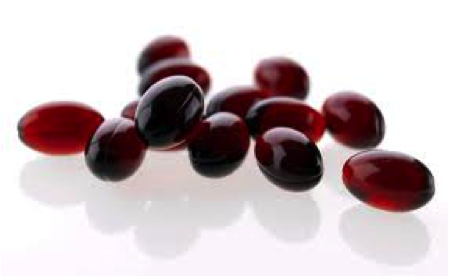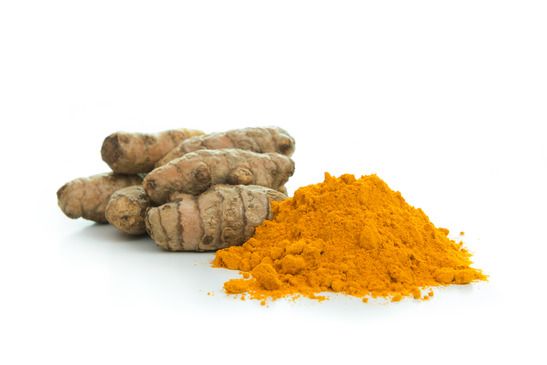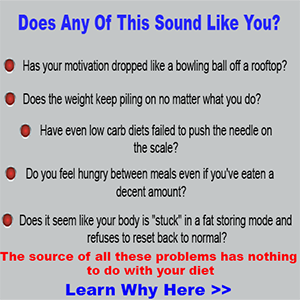The Second Step To Improving Your Heart Health in 2021
 Way back in the 1970's, a group of researchers first stumbled upon a truly unique experience.
Way back in the 1970's, a group of researchers first stumbled upon a truly unique experience.They were busy studying Greenland Inuit and discovered that they had a very low risk for heart disease and cardiovascular-related deaths - even though they consumed a high-fat diet.
They discovered though, that most of the fat in their diet came from wild-caught fish sources.
That's right, omega-3 fatty acids!
So the researchers continued to study, and the boom of omega-3 fatty acids - in the form of fish oil, flaxseed oil, and later Krill oil - came to be born.
Now, countless studies have shown that omega-3 fatty acids are beneficial to heart health, by improving cholesterol levels...
Lowering inflammation levels by competing with omega-6 fatty acids...
And, lowering triglycerides (a product of a high carbohydrate diet)!
However, as the research continued to come in, they found many more uses for omega-3 fatty acids.
They found them to be beneficial at improving not only heart health, but eye health, brain health, and joint health.
No wonder why omega-3 fats continue to be the most widely researched AND USED fat around!

The fact is: Due to the tremendous amount of good research out there, omega-3 fatty acids still continue to be recommended or prescribed by doctors, cardiologists, and others in the medical community.
A New Study
Now, before you tell me about the one negative study recently released, I want to give you the results of another, more recently published study.
In this study, they assessed omega-3 fatty acids - from wild caught fish, farmed fish, alternative sources, and supplements - and what type of effects they had on improving heart health.
.jpg) They did mention that national heart agencies and government agencies are recommending increasing your intake of fatty fish - like salmon - in order to boost your intake of omega-3 fatty acids.
They did mention that national heart agencies and government agencies are recommending increasing your intake of fatty fish - like salmon - in order to boost your intake of omega-3 fatty acids.Also, they mention how you can get omega-3 fats from other sources, such as yeast, algae, and plant sources (ALA).
However, the bottom line is: You should increase your intake in order to get more omega-3 fats into your day or week!
Now, the question they wanted answered in this review is if omega-3 fatty acids from NONFISH sources were as effective at boosting omega-3 fatty acid profiles AND if it had similar health effects.
Now that you are waiting eagerly to find out the answer...
They did show that non-fish sources of omega-3 fats - like a supplements, plant sources, or another source - may still be important for the health of your heart.
In the study, they showed that chia seeds and flax seeds - which are high in omega-3 fats - may contain less bioavailable omega-3 fatty acids, due to the demands and processing by your body.

Also, they mentioned that algae and yeast sources of omega-3 fatty acids were high quality and readily available for use in your body.
Although they found that some sources vary in their effectiveness, they did conclude that the omega-3 fatty acids - DHA and EPA - are still important nutrients to include in your diet.
Get More Omega-3 Fats
The number one recommended way to increase your omega-3 fatty acids is to consume more wild-caught fatty fish - and not farmed due to the altered omega-3/omega-6 ratio - like salmon and others.
However, using other sources, such as plant, algae, yeast, and omega-3 fatty acid supplements, may also increase the concentration of omega-3 fats in your blood and your heart tissue.
No matter which way you include omega-3 fatty acids, it’s important to understand that you may be doing a great service to your health by providing it with nutrients that could decrease your risk for a number of potential diseases - but most notably - heart disease.



References:
Jump D, Depner CM, Tripathy S. Omega-3 fatty acid supplementation and cardiovascular disease Thermatic Review Series: New Lipid and Lipoprotein Targets for the Treatment of Cardiometabolic Diseases. The Journal of Lipid Research. 2012 Aug;53:2525-2545.
About Jayson Hunter & Jaylab Pro

Jaylab Pro was founded by Registered Dietitian Jayson Hunter. Jayson has been recognized as one of America's foremost weight loss experts by America's Premier Experts™. He has also been featured in USA Today for this accomplishment. Jayson is also a best-selling author having co-authored multiple books in health & fitness and business growth. Jayson and the Jaylab Pro team are proud to create content that helps improve the lives of millions of people around the world. We hope you enjoy it just as much as others have.
 If you order a JayLabPro SmartShip product or any Combo Package, we will automatically ship you a new supply of the product or products you have ordered every month, starting 30 days after your initial order is shipped, and continuing until you cancel. The credit card you are using today will be billed the lowest available price for those product or products when your order is shipped, but shipping will be FREE. You may log into your customer account or call our customer service department toll-free at 1-888-9GETPRO (1-888-943-8776) between the hours of 8am – 9pm EST Mon-Fri to cancel future shipments, customize the timing of your shipments, or change the credit card used for billing.
If you order a JayLabPro SmartShip product or any Combo Package, we will automatically ship you a new supply of the product or products you have ordered every month, starting 30 days after your initial order is shipped, and continuing until you cancel. The credit card you are using today will be billed the lowest available price for those product or products when your order is shipped, but shipping will be FREE. You may log into your customer account or call our customer service department toll-free at 1-888-9GETPRO (1-888-943-8776) between the hours of 8am – 9pm EST Mon-Fri to cancel future shipments, customize the timing of your shipments, or change the credit card used for billing.










